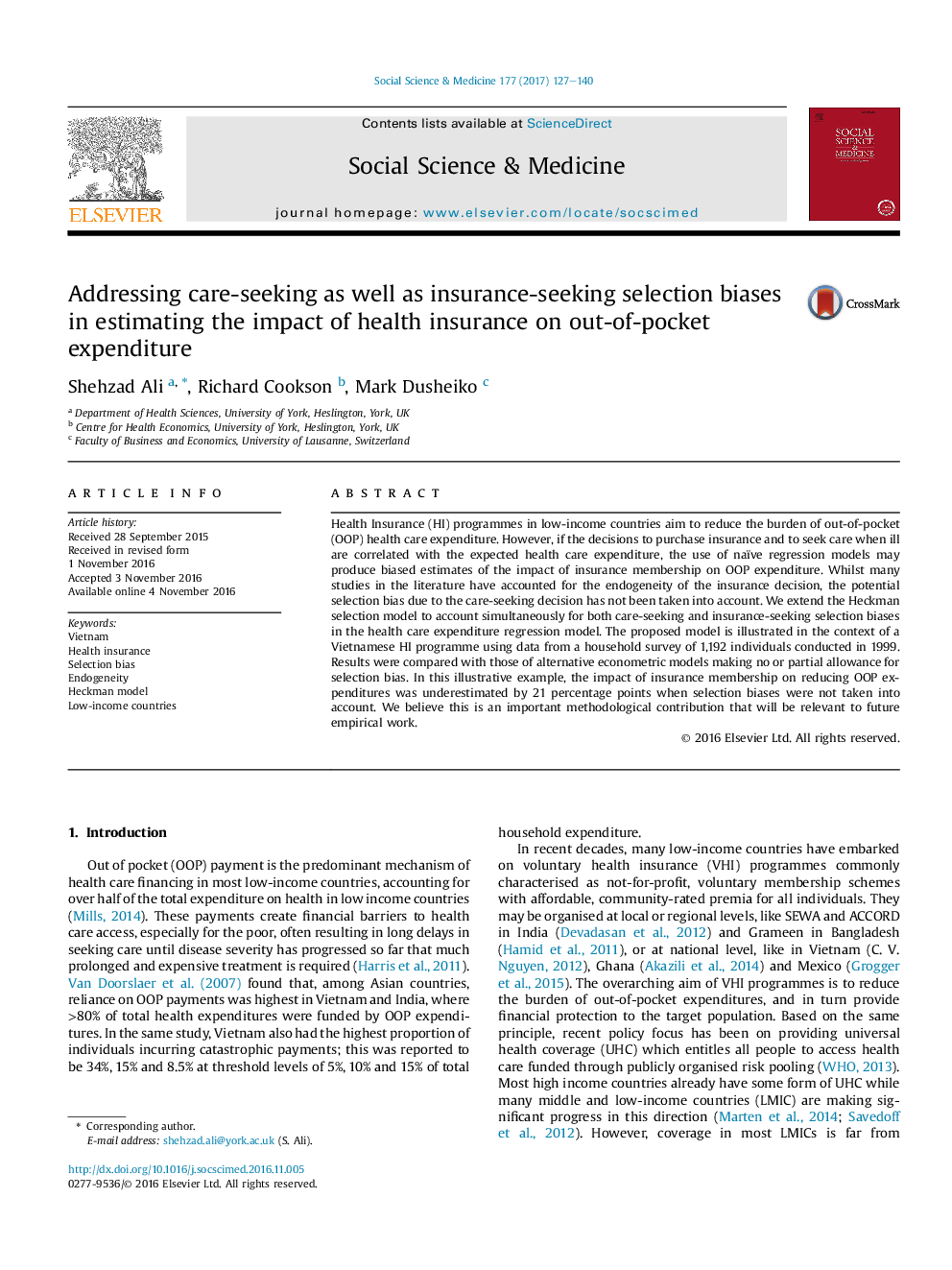| کد مقاله | کد نشریه | سال انتشار | مقاله انگلیسی | نسخه تمام متن |
|---|---|---|---|---|
| 5046719 | 1475992 | 2017 | 14 صفحه PDF | دانلود رایگان |
- Healthcare expenditure depends on care-seeking which depends on expected expenditure.
- Most studies of health insurance ignore selection bias due to care-seeking decision.
- We propose a dual-selection model for care-seeking and insurance-seeking biases.
- Ignoring selection bias underestimated the impact of insurance in our empirical study.
- Studies should consider care-seeking as well as insurance-seeking selection biases.
Health Insurance (HI) programmes in low-income countries aim to reduce the burden of out-of-pocket (OOP) health care expenditure. However, if the decisions to purchase insurance and to seek care when ill are correlated with the expected health care expenditure, the use of naïve regression models may produce biased estimates of the impact of insurance membership on OOP expenditure. Whilst many studies in the literature have accounted for the endogeneity of the insurance decision, the potential selection bias due to the care-seeking decision has not been taken into account. We extend the Heckman selection model to account simultaneously for both care-seeking and insurance-seeking selection biases in the health care expenditure regression model. The proposed model is illustrated in the context of a Vietnamese HI programme using data from a household survey of 1,192 individuals conducted in 1999. Results were compared with those of alternative econometric models making no or partial allowance for selection bias. In this illustrative example, the impact of insurance membership on reducing OOP expenditures was underestimated by 21 percentage points when selection biases were not taken into account. We believe this is an important methodological contribution that will be relevant to future empirical work.
Journal: Social Science & Medicine - Volume 177, March 2017, Pages 127-140
